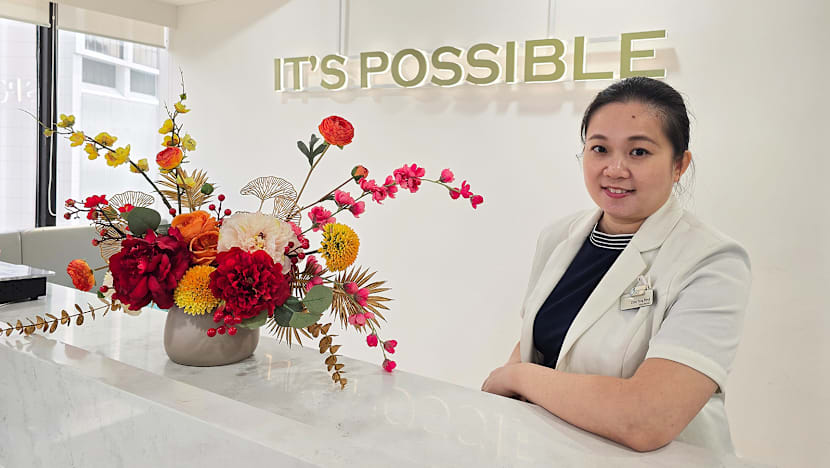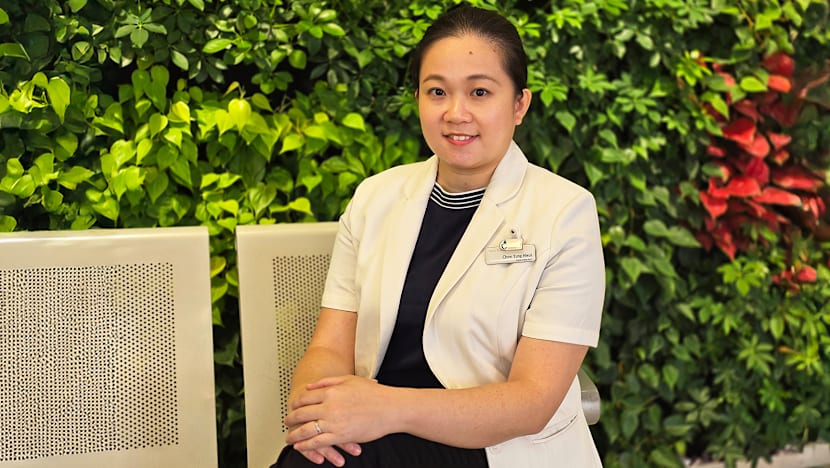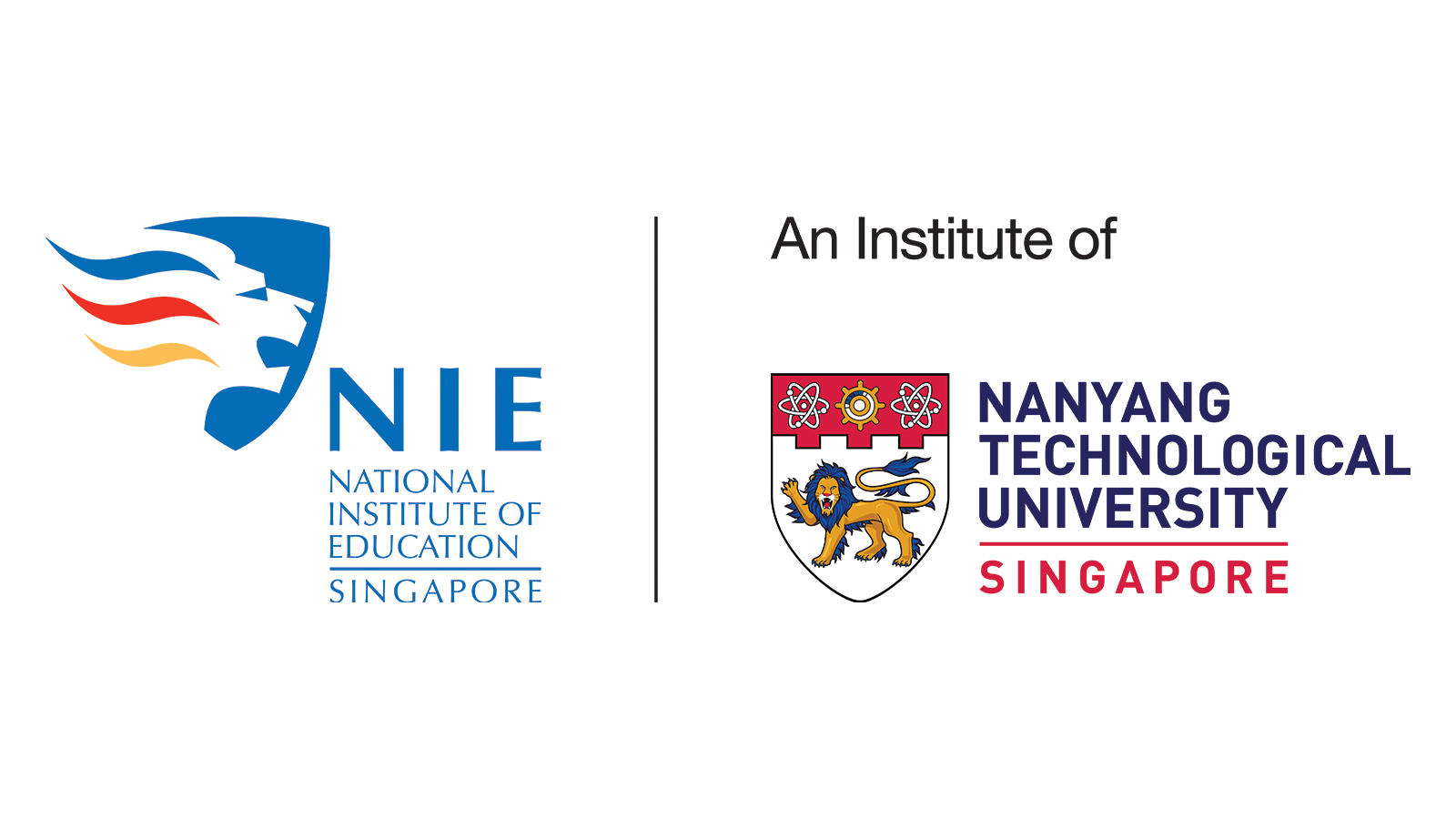Empowering nurses through education: Why a nursing educator returned to school
Enrolling in a Master of Arts in Professional Education (Training & Development) at NIE NTU helped Ms Chew Yung Hwui design more engaging evidence-based training for the next generation of nurses.

Nurse educator Chew Yung Hwui taps storytelling, games and other interactive methods to ease cognitive load and aid retention. Photos: NIE NTU, Singapore

This audio is generated by an AI tool.
With 18 years of experience in healthcare, Ms Chew Yung Hwui believes that safe, high-quality care begins with well-informed and empowered nurses.
A nurse educator who previously worked in clinical practice and management, Ms Chew finds deep fulfilment in helping nurses grow and develop their skills – and knowing that their progress ultimately translates into better patient care. Her role includes course delivery, curriculum development, competency assessments and professional development.
Over the years, she has seen Singapore’s nursing workforce become more diverse, with a broader range of ages, cultural backgrounds and learning preferences. At the same time, new technologies are being integrated into healthcare education, creating different ways to teach and learn.
“Workforce diversity calls for teaching approaches that are adaptable and inclusive, especially in the digital age,” Ms Chew said. “Understanding these shifts helps me design relevant and meaningful learning experiences. I hope this enables nurses to strengthen their critical thinking, deepen their professional expertise and stay motivated – despite the demands of the job.”
HONING HER ABILITY TO CONTRIBUTE AT WORK
In 2023, Ms Chew enrolled in the Master of Arts in Professional Education (Training and Development) at the National Institute of Education, National Technological University, Singapore (NIE NTU, Singapore), as a part-time student.
With more than 30 graduate programmes, NIE supports educators and professionals in training and development roles. Its learning community includes students from a wide range of sectors and backgrounds, offering cross-industry perspectives and connections.
“The Master of Arts in Professional Education (Training and Development) is well-regarded for its rigorous and thoughtfully structured curriculum,” noted Ms Chew. “I was confident that this investment in lifelong learning would significantly enhance my knowledge and skills as a nurse educator.”
She found the programme’s focus on pedagogical, social and technical design for e-learning content especially useful. Beyond providing structure, it highlighted the importance of learner-learner, learner-content and learner-instructor interaction. “It enhanced my understanding of how learning happens and offered new ways to design educational experiences. I also learned to use innovative tools such as virtual reality equipment, interactive e-learning platforms and statistical software, which strengthened my research and analytical skills.”
She was also grateful for the guidance of NIE faculty such as Associate Professor Doris Choy. “Assoc Prof Choy was an exceptionally engaging lecturer who explained complex concepts clearly, making abstract theories easy to grasp. Her practical advice during consultations helped ensure I stayed on track.”
As part of her coursework, Ms Chew conducted a study evaluating the impact of a chemotherapy certification course for registered nurses. The study measured outcomes such as reductions in waiting time and delays in chemotherapy administration at the medical-surgical wards of her workplace. After the training, nurses were able to save an average of 30 minutes per session, leading to more timely treatment and improved patient safety.
“The master’s programme has helped me apply educational methods more effectively and generate reliable data to show real organisational impact,” she said.
EXPANDING THE LIMITS OF LEARNING ENGAGEMENT

Balancing studies, work and parenting was at times challenging for Ms Chew, even with the support of her husband and employer. “There were late nights, but the learning was meaningful and directly relevant to my work,” she said.
The programme has helped her improve learner engagement and scaffold training more effectively. After a classroom exercise creating a training video on the Heimlich manoeuvre – where she discovered the use of humour to aid learning – Ms Chew began focusing more on creativity in her instructional design. Today, she uses storytelling, gamification and other interactive approaches to manage cognitive load and boost knowledge retention.
She also found inspiration in her classmates, who came from varied backgrounds including law enforcement, the civil service, IT and public transport training.
One classmate, an air traffic controller, shared how he used real-life communication audio and walkie-talkie-style equipment to simulate work conditions. Another, a secondary school teacher, introduced a ‘mood meter’ to help students build emotional awareness and empathy.
“Both approaches were relevant to nursing education,” said Ms Chew. “For instance, reflective strategies and emotional awareness can help nurses build resilience, which is essential for delivering compassionate and consistent care.”
Since graduating in July, she has continued to exchange ideas with her classmates, learning how other sectors approach training and development. She also shares her own perspective on healthcare education, particularly the emphasis on evidence-based practice and safeguarding standards.
“Their fresh ideas and different ways of thinking have helped me see my own work in a new light,” she shared. “They remind me not to stay anchored to one way of doing things, but to keep evolving.”
Applications for the August 2026 intake of the Master of Arts in Professional Education (Training & Development) and other master’s programmes at NIE NTU, Singapore, are open. Apply by Nov 28 for research programmes and Dec 29 for coursework programmes.















